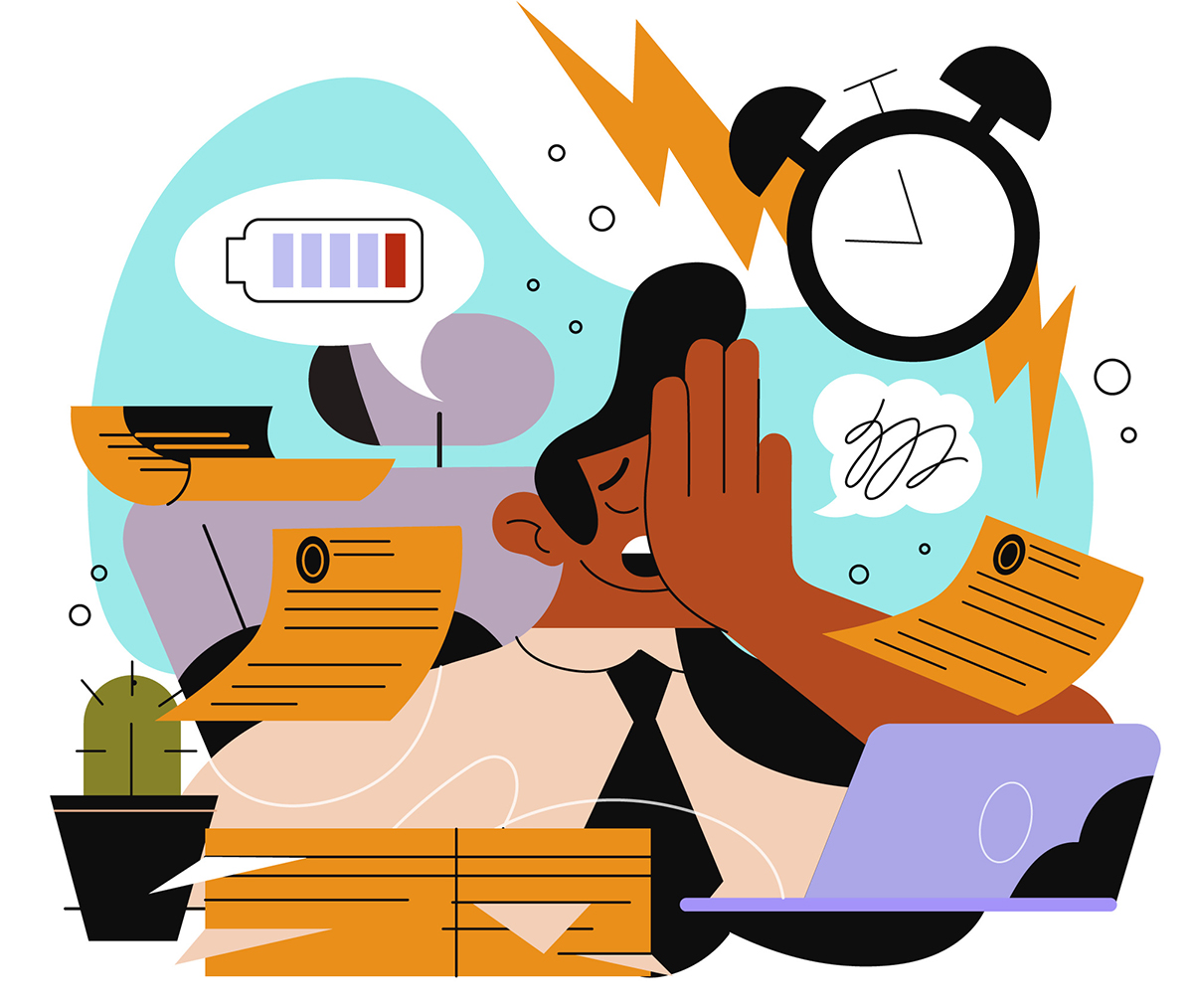What Is Employee Burnout and Why Is It a Problem?
By Maria Forbes
July 24, 2020
When running a company, you should be conscious of whether your employees are suffering from burnout. It’s a common problem in the modern-day workplace that isn’t restricted to any particular field or profession. According to a survey conducted by Gallup, in fact, nearly one in four full-time employees always or regularly suffers from burnout, whereas 44% of employees suffer from occasional burnout. For a better understanding of employee burnout and why it’s a problem for your company, keep reading.
The Basics of Burnout
Also known as job burnout, employee burnout is a state in which an employee is physically and/or mentally exhausted from working. It’s not recognized as an actual disease or medical condition. Rather, employee burnout is a state of extreme exhaustion.
Some people assume that employee burnout only occurs in specific industries, but this isn’t necessarily true. Regardless of industry or profession, any employee can experience burnout. It’s an all-too-common problem that can adversely affect employees, as well as the companies for which they work, in many ways.
Some of the most common causes of employee burnout include the following:
- Working long hours
- Little or no creative freedom
- Poor balance between work and personal life
- Negative company culture
- Little or no feedback from peers
- Lack of recognition
Lower Productivity
Why is an employee burnout a problem exactly? Among other things, employee burnout often leads to lower productivity. When an employee experiences burnout, he or she will work slower and less efficiently. Employees don’t have an infinite amount of mental or physical energy. Once they’ve reached their metaphorical peak, they’ll begin to experience burnout, resulting in lower productivity. An employee may still show up to work, but he or she won’t perform at 100% if burnout occurs. As a result, employee burnout can have a direct impact on your company’s operations by driving down its overall productivity, as well.
Sick Leave
Employees may request sick leave if they experience burnout. A study conducted by researchers from Stanford University found that work-related stress was responsible for nearly 8% of the healthcare costs in the workplace. Burnout, of course, is intrinsically connected to stress. Employees who experience burnout typically exhibit high stress levels, which may force them to take time off from work to seek medical care.

Negative Morale
The impact of employee burnout doesn’t stop there. In addition to lower productivity and more sick leave requests, burnout can foster a negative morale. Employees pick up on the mood of their coworkers. If an employee is experiencing burnout, he or she will likely have a negative mood that spreads to his or her coworkers. The burned-out employee won’t exhibit a positive or energetic mood. Instead, he or she will be exhausted, which manifests as a negative mood. The burned-out employee’s coworkers will notice his or her mood, which may cause a negative morale throughout your company’s workplace.
Higher Turnover Rate
Another reason employee burnout is a problem is because it contributes to a higher turnout rate. Turnover rate is defined as the percentage of employees who exit your company during a specified period. If your company had 100 employees at the beginning of the year, 20 of whom quit by the end of the year, its turnover rate for that year would be 20%. While many factors can affect turnover rates, employee burnout is a major contributing factor. When suffering from burnout, an employee won’t be motivated, nor will he or she feel a sense of job satisfaction. This may prompt the employee to quit in search of employment elsewhere.
Tips on Preventing Employee Burnout
Although it’s a common problem in the workplace, there are ways to prevent employee burnout. First and foremost, you should try to understand why employees are experiencing burnout. One of the leading causes of employee burnout is working long hours. If an employee is overworked to the point it affects his or her productivity, there’s a good chance the employee is suffering from burnout. In cases such as this, you should consider giving the employee time off to mentally and physically recuperate. When the employee returns, he or she should feel refreshed.
A negative company culture can cause employee burnout. If there’s a general attitude flowing through your company’s workplace, it may cause employees to experience burnout. Therefore, you should work to build a positive company culture. Express gratitude to employees by showing your appreciation for everything they do. With a positive company culture, employees will feel more motivated, which can counter or even prevent burnout from occurring.
In Conclusion
Don’t let employee burnout hinder your company’s success. If ignored, it can lead to lower productivity, increased sick leave, a negative morale and a higher turnover rate, all of which can restrict your company from achieving its goals. So, take action today to keep employees happy and engaged.




